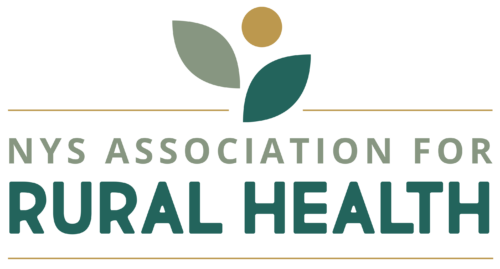NYSARH receives $100,000 grant to strengthen rural mental health access

The New York State Association for Rural Health (NYSARH) has been awarded a $100,000 grant from the New York Health Foundation (NYHealth) as part of its Building Resiliency Among New York’s Rural Health Organizations initiative. This funding will equip community partners with the tools and resources they need to respond to pressing health challenges, with a particular focus on improving mental health access in rural communities.
Through this initiative, NYSARH will lead efforts to assess and address gaps in mental health services across New York’s rural regions. The project includes:
•A comprehensive Rural Health Needs Assessment synthesizing mental health data from 44 rural counties to provide insights into existing needs, assets, and disparities.
•Collaboration with up to 12 rural health networks and community-based organizations to gather feedback, inform a shared action plan, and develop advocacy strategies to improve rural mental health care.
“This grant is a catalyst for real change in rural mental health,” said Alison Coates, MS, MBA, PhD(c), President, Board of Directors, NYSARH. “With the support of NYHealth, we will develop actionable solutions to bridge gaps in mental health access, build stronger community partnerships, and advocate for policy changes that ensure every rural New Yorker has the care they need when they need it.”
“Rural health organizations are essential to the wellbeing of many communities throughout New York State, yet they often operate with limited resources,” said David Sandman, PhD, President and CEO of NYHealth. “NYHealth is proud to support NYSARH in its efforts to strengthen mental health services and rural health infrastructure to make health care more accessible to New Yorkers.”
Forty-four of New York State’s 62 counties are classified as fully or partially rural, and these communities face unique health challenges, including:
•Limited access to behavioral health providers due to workforce shortages.
•Long distances to care facilities and a lack of transportation options.
•Stagnant state reimbursement rates and funding eligibility restrictions that hinder the expansion of mental health services.
•Increased hospital closures and consolidation of health services, further straining access to care.
Despite these challenges, rural health networks play a crucial role in coordinating local resources, addressing workforce needs, and advocating for better health policies. However, these networks are often underfunded and affected by staff shortages and leadership transitions. This initiative aims to provide them with the necessary support to drive impactful, community-led solutions.
Provided information






